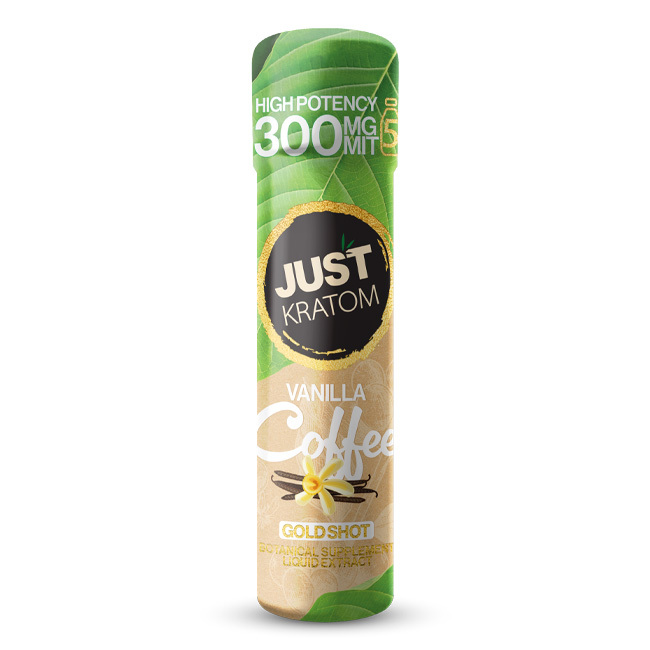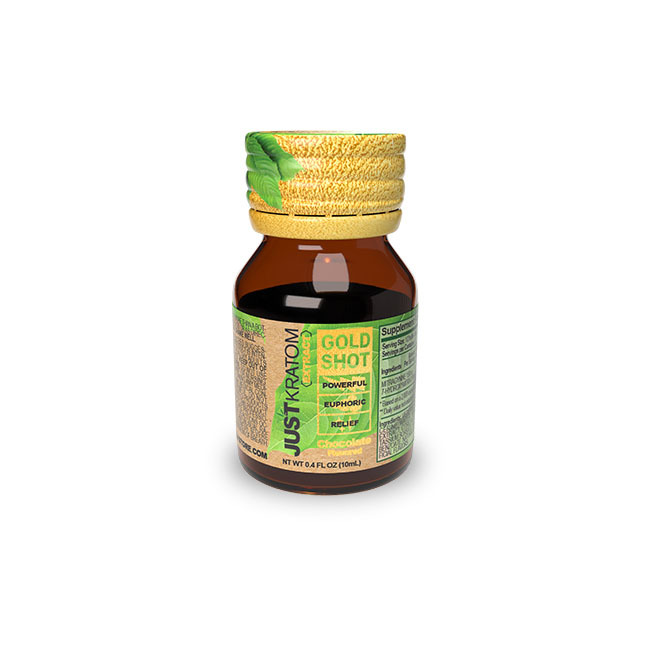Kratom’s Mechanism of Action
Kratom exerts its effects through interactions with opioid receptors in the brain, primarily mu-opioid receptors. While it shares some similarities with opioids like morphine, kratom’s mechanism is complex and not fully understood. At lower doses, kratom can act as a stimulant, producing energy and focus. Higher doses lead to pain relief and sedation, similar to opioids. However, kratom also interacts with other neurotransmitter systems, including serotonin, dopamine, and norepinephrine, contributing to its diverse range of effects.
How Kratom Affects the Brain
Kratom exerts its effects through interactions with opioid receptors in the brain, primarily mu-opioid receptors. While it shares some similarities with opioids like morphine, kratom’s mechanism is complex and not fully understood. At lower doses, kratom can act as a stimulant, producing energy and focus. Higher doses lead to pain relief and sedation, similar to opioids. However, kratom also interacts with other neurotransmitter systems, including serotonin, dopamine, and norepinephrine, contributing to its diverse range of effects.
Effects and Potential Benefits
Kratom exerts its effects through interactions with opioid receptors in the brain, primarily mu-opioid receptors. While it shares some similarities with opioids like morphine, kratom’s mechanism is complex and not fully understood. At lower doses, kratom can act as a stimulant, producing energy and focus. Higher doses lead to pain relief and sedation, similar to opioids. However, kratom also interacts with other neurotransmitter systems, including serotonin, dopamine, and norepinephrine, contributing to its diverse range of effects.
These interactions can produce a variety of potential benefits, such as:
- Pain Relief
- Reduced Anxiety
- Improved Mood
- Increased Energy
- Enhanced Focus
Addiction Potential of Gold Shots
Kratom has gained popularity due to its potential benefits, but concerns about its addictive potential persist. Gold shots, a concentrated form of kratom, raise particular questions about addiction risk. Understanding how kratom interacts with the brain and its potential for abuse is crucial for making informed decisions about its use.
Signs and Symptoms of Dependence
While kratom’s mechanism of action is complex, it shares similarities with opioids like morphine, primarily through interactions with mu-opioid receptors in the brain. This interaction can lead to dependence and addiction.
Gold shots, being a concentrated form of kratom, carry a heightened risk of addiction due to their increased potency. Signs and symptoms of kratom dependence can include:
Craving for kratom and experiencing withdrawal symptoms when trying to stop using it. These symptoms can range from mild discomfort to severe physical and psychological distress.

Increased tolerance, requiring higher doses of kratom to achieve the desired effects over time.
Neglecting responsibilities or engaging in risky behaviors to obtain kratom.
Continuing to use kratom despite negative consequences on relationships, work, or health.
Withdrawal Symptoms

Kratom’s interaction with opioid receptors in the brain, particularly mu-opioid receptors, can lead to dependence and addiction. Gold shots, a concentrated form of kratom, amplify this risk due to their increased potency.
Withdrawal symptoms associated with kratom dependence can be significant and may include nausea, vomiting, diarrhea, muscle aches, anxiety, irritability, insomnia, and depression.
Risk Factors for Addiction
Kratom’s potential for addiction stems from its interaction with opioid receptors in the brain. Gold shots, being highly concentrated, intensify this risk. Individuals who use gold shots may develop a dependence on the substance, leading to withdrawal symptoms when attempting to cease use.
Risk factors for addiction to kratom, including gold shots, encompass various factors. These include a pre-existing history of substance abuse disorders, genetic predisposition to addiction, mental health conditions like depression or anxiety, and personal or environmental stressors.
It’s essential to approach kratom use with caution and be aware of the potential for dependence. If you are considering using kratom, particularly in the form of gold shots, consult a healthcare professional to discuss the risks and benefits, as well as alternative treatment options.
Safety and Regulation of Kratom Gold Shots
The safety and regulation of kratom gold shots is a growing concern due to their potent nature and potential for abuse. Gold shots are concentrated forms of kratom, known for its stimulating and pain-relieving effects stemming from interactions with opioid receptors in the brain.
Manufacturing Standards and Quality Control
Kratom’s interaction with opioid receptors in the brain, particularly mu-opioid receptors, can lead to dependence and addiction. Gold shots, being highly concentrated, intensify this risk.

While there are ongoing discussions surrounding its safety and regulation, the manufacturing standards and quality control for kratom gold shots are not consistently enforced across all markets.
- Lack of standardized production processes can result in variations in potency and composition between different batches of kratom gold shots.
- The absence of strict quality control measures may lead to contamination with harmful substances or the presence of undeclared ingredients.
- Limited research exists on the long-term health effects of consuming concentrated forms of kratom like gold shots, raising concerns about potential risks.
It is essential for consumers to exercise caution when considering kratom gold shot use and to prioritize products from reputable sources that adhere to strict manufacturing standards and quality control practices.
Legal Status and Regulations
Kratom Gold Shots are a concentrated form of kratom, a substance derived from the leaves of the Mitragyna speciosa tree. Kratom’s effects stem from its interaction with opioid receptors in the brain, particularly mu-opioid receptors. While it shares some similarities with opioids like morphine, its mechanism is complex and not fully understood. At lower doses, kratom can act as a stimulant, while higher doses produce pain relief and sedation.
The legal status of kratom varies widely across the globe. In some countries, it is completely banned, while in others it is legal but regulated. The United States currently lacks a federal ban on kratom, but several states have implemented their own restrictions.
Regulation of kratom gold shots specifically is often less stringent than that of other substances due to the relatively new nature of these products and the ongoing debate surrounding kratom’s safety and potential risks.
Given the lack of comprehensive regulation, it is crucial for consumers to exercise caution when considering the use of kratom gold shots. Choosing reputable sources that prioritize quality control and transparency is essential.
Potential Health Risks and Interactions
Kratom Gold Shots are a concentrated form of kratom, a substance derived from the leaves of the Mitragyna speciosa tree. Kratom’s effects stem from its interaction with opioid receptors in the brain, particularly mu-opioid receptors. While it shares some similarities with opioids like morphine, its mechanism is complex and not fully understood. At lower doses, kratom can act as a stimulant, while higher doses produce pain relief and sedation.
The legal status of kratom varies widely across the globe. In some countries, it is completely banned, while in others it is legal but regulated. The United States currently lacks a federal ban on kratom, but several states have implemented their own restrictions.
Regulation of kratom gold shots specifically is often less stringent than that of other substances due to the relatively new nature of these products and the ongoing debate surrounding kratom’s safety and potential risks.
Given the lack of comprehensive regulation, it is crucial for consumers to exercise caution when considering the use of kratom gold shots. Choosing reputable sources that prioritize quality control and transparency is essential.
Kratom’s interaction with opioid receptors in the brain can lead to dependence and addiction. Gold shots, being highly concentrated, intensify this risk. Individuals who use gold shots may develop a dependence on the substance, leading to withdrawal symptoms when attempting to cease use.
Withdrawal symptoms associated with kratom dependence can be significant and may include nausea, vomiting, diarrhea, muscle aches, anxiety, irritability, insomnia, and depression.
Risk factors for addiction to kratom, including gold shots, encompass various factors. These include a pre-existing history of substance abuse disorders, genetic predisposition to addiction, mental health conditions like depression or anxiety, and personal or environmental stressors.
It’s essential to approach kratom use with caution and be aware of the potential for dependence. If you are considering using kratom, particularly in the form of gold shots, consult a healthcare professional to discuss the risks and benefits, as well as alternative treatment options.
Seeking Help for Kratom Use Disorder
Kratom, a substance derived from the leaves of the Mitragyna speciosa tree, has gained popularity for its potential pain-relieving and mood-boosting effects. However, concerns about its addictive potential, particularly with concentrated forms like gold shots, have risen. Understanding the mechanisms behind kratom’s effects and the risks associated with its use is crucial for making informed decisions about its consumption.
Treatment Options
Seeking help for kratom use disorder is essential for individuals struggling with addiction. Treatment options aim to address both the physical and psychological aspects of dependence.
Behavioral therapies, such as cognitive-behavioral therapy (CBT) and contingency management, play a crucial role in addressing the underlying behavioral patterns and triggers associated with kratom use.
Medications may be prescribed to manage withdrawal symptoms and cravings, but there are no FDA-approved medications specifically for kratom addiction.
Support groups, such as Narcotics Anonymous (NA), offer a supportive environment for individuals recovering from substance use disorders, including kratom dependence.
Addressing co-occurring mental health conditions is crucial, as they often contribute to substance use disorders.
A comprehensive treatment plan tailored to the individual’s needs is essential for successful recovery.
Support Resources
Kratom Gold Shots are a concentrated form of kratom, a substance derived from the leaves of the Mitragyna speciosa tree. Kratom’s effects stem from its interaction with opioid receptors in the brain, particularly mu-opioid receptors. While it shares some similarities with opioids like morphine, its mechanism is complex and not fully understood. At lower doses, kratom can act as a stimulant, while higher doses produce pain relief and sedation.
The legal status of kratom varies widely across the globe. In some countries, it is completely banned, while in others it is legal but regulated. The United States currently lacks a federal ban on kratom, but several states have implemented their own restrictions.
Regulation of kratom gold shots specifically is often less stringent than that of other substances due to the relatively new nature of these products and the ongoing debate surrounding kratom’s safety and potential risks.
Given the lack of comprehensive regulation, it is crucial for consumers to exercise caution when considering the use of kratom gold shots. Choosing reputable sources that prioritize quality control and transparency is essential.
Kratom’s interaction with opioid receptors in the brain can lead to dependence and addiction. Gold shots, being highly concentrated, intensify this risk. Individuals who use gold shots may develop a dependence on the substance, leading to withdrawal symptoms when attempting to cease use.
Withdrawal symptoms associated with kratom dependence can be significant and may include nausea, vomiting, diarrhea, muscle aches, anxiety, irritability, insomnia, and depression.
Risk factors for addiction to kratom, including gold shots, encompass various factors. These include a pre-existing history of substance abuse disorders, genetic predisposition to addiction, mental health conditions like depression or anxiety, and personal or environmental stressors.
Seeking help for kratom use disorder is essential for individuals struggling with addiction. A comprehensive treatment plan tailored to the individual’s needs is essential for successful recovery.
- Behavioral Therapies: Cognitive-behavioral therapy (CBT) and contingency management can help address underlying behavioral patterns and triggers associated with kratom use.
- Medications: Medications may be prescribed to manage withdrawal symptoms and cravings, although there are no FDA-approved medications specifically for kratom addiction.
- Support Groups: Narcotics Anonymous (NA) provides a supportive environment for individuals recovering from substance use disorders, including kratom dependence.
- **Addressing Co-occurring Conditions:** It’s crucial to address any underlying mental health conditions, as they often contribute to substance use disorders.
Get Kratom Gold Shots at Just Kratom
- How Long Does It Take For Lip Swelling To Go Down After Filler - August 12, 2025
- How Long Do The Effects Of Kratom Gummies Last? - August 10, 2025
- How Kratom Powder Can Help Improve Focus And Productivity - August 4, 2025
